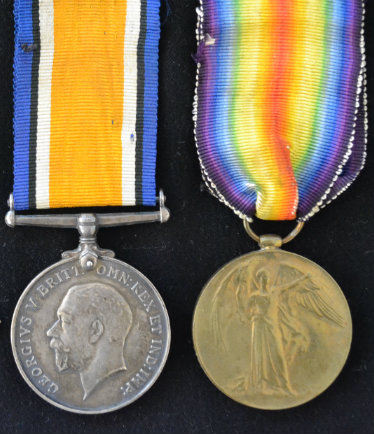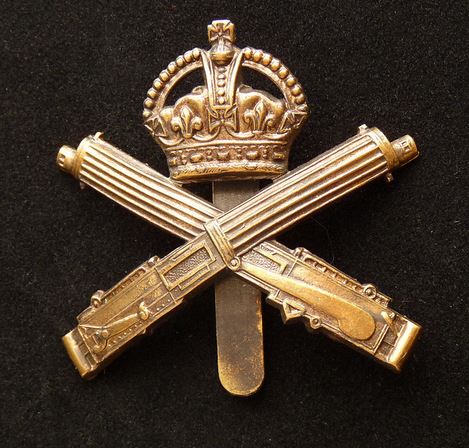Personal Details
Born: 20 January 1886 in Wellington, Shropshire.
Family: He married Ellen Bates in 1906 in Whitchurch, Shropshire and together they had five children – William Richard, Peter, Harriett E, Hilda and Mary J.
Residence: In 1911 he lived at 2 Venables Yard, Whitchurch, Shropshire; this was the address shown on the 1919 Absent Voters’ Register. In 1939 he lived at 8 Bark Hill, Whitchurch.
Employment: In 1911 he was a general labourer; in 1939 he was described as a general dealer.
Died: In 1951 in Whitchurch and buried 5 May the same year in Whitchurch cemetery.
Military Details
Regiment: Machine Gun Corps
Rank: Private
Service Number: 54590
Date of Enlistment: Not known
Date of Discharge: Not known
Reason for Discharge: Not known
Walter was awarded the Campaign Medals (British War Medal, and Victory Medal)

The British War Medal (also known as 'Squeak') was a silver or bronze medal awarded to officers and men of the British and Imperial Forces who either entered a theatre of war or entered service overseas between 5th August 1914 and 11th November 1918 inclusive. This was later extended to services in Russia, Siberia and some other areas in 1919 and 1920. Approximately 6.5 million British War Medals were issued. Approximately 6.4 million of these were the silver versions of this medal. Around 110,000 of a bronze version were issued mainly to Chinese, Maltese and Indian Labour Corps. The front (obv or obverse) of the medal depicts the head of George V. The recipient's service number, rank, name and unit was impressed on the rim.
The Allied Victory Medal (also known as 'Wilfred') was issued by each of the allies. It was decided that each of the allies should each issue their own bronze victory medal with a similar design, similar equivalent wording and identical ribbon. The British medal was designed by W. McMillan. The front depicts a winged classical figure representing victory. Approximately 5.7 million victory medals were issued. Interestingly, eligibility for this medal was more restrictive and not everyone who received the British War Medal ('Squeak') also received the Victory Medal ('Wilfred'). However, in general, all recipients of 'Wilfred' also received 'Squeak' and all recipients of The 1914 Star or The 1914/1915 Star (also known as 'Pip') also received both 'Squeak' and 'Wilfred'. The recipient's service number, rank, name and unit was impressed on the rim.

